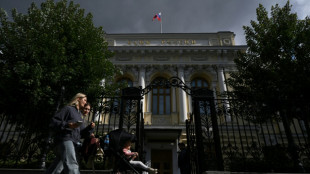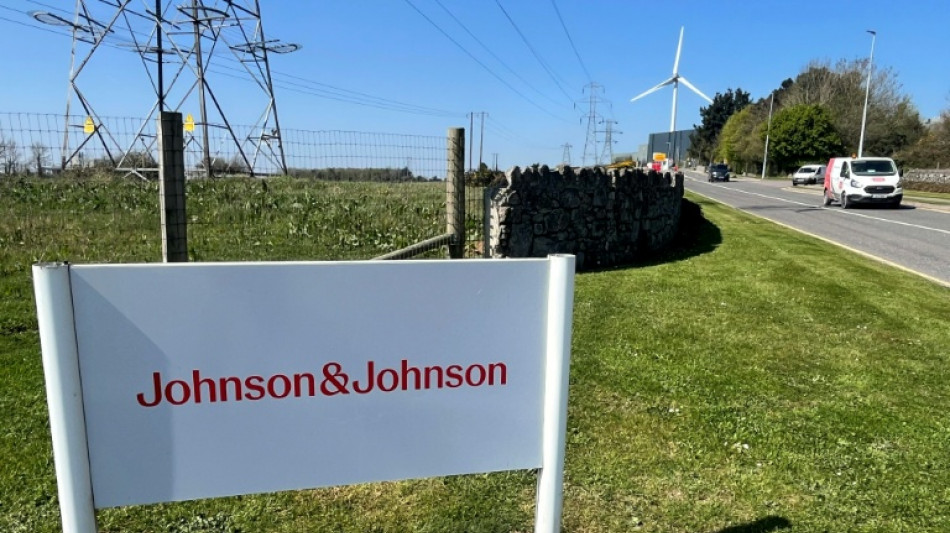
-
 Rampant Springboks inflict record 43-10 defeat to humble All Blacks
Rampant Springboks inflict record 43-10 defeat to humble All Blacks
-
Italy's Bezzecchi claims San Marino MotoGP pole as Marquez brothers denied

-
 Rampant South Africa inflict record 43-10 defeat on All Blacks
Rampant South Africa inflict record 43-10 defeat on All Blacks
-
Collignon stuns De Minaur as Belgium take 2-0 Davis Cup lead over Australia

-
 Mourning Nepalis hope protest deaths will bring change
Mourning Nepalis hope protest deaths will bring change
-
Carreras boots Argentina to nervy 28-26 win over Australia

-
 Nepal returns to calm as first woman PM takes charge
Nepal returns to calm as first woman PM takes charge
-
How mowing less lets flowers bloom along Austria's 'Green Belt'

-
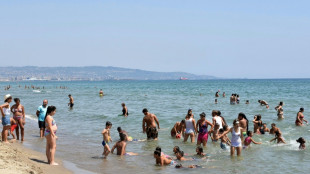 Too hot to study, say Italian teachers as school (finally) resumes
Too hot to study, say Italian teachers as school (finally) resumes
-
Alvarez, Crawford both scale 167.5 pounds for blockbuster bout

-
 Tokyo fans savour athletics worlds four years after Olympic lockout
Tokyo fans savour athletics worlds four years after Olympic lockout
-
Akram tells Pakistan, India to forget noise and 'enjoy' Asia Cup clash
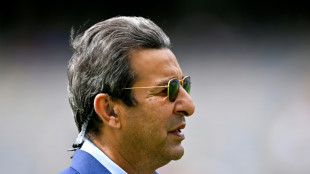
-
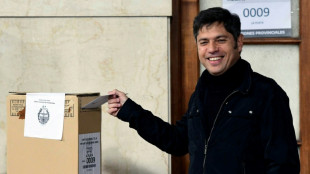 Kicillof, the Argentine governor on a mission to stop Milei
Kicillof, the Argentine governor on a mission to stop Milei
-
Something to get your teeth into: 'Jaws' exhibit marks 50 years
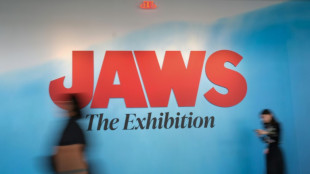
-
 Germany, France, Argentina, Austria on brink of Davis Cup finals
Germany, France, Argentina, Austria on brink of Davis Cup finals
-
War with Russia weighs heavily on Ukrainian medal hope Doroshchuk

-
 Suspect in Charlie Kirk killing caught, widow vows to carry on fight
Suspect in Charlie Kirk killing caught, widow vows to carry on fight
-
Dunfee and Perez claim opening world golds in Tokyo

-
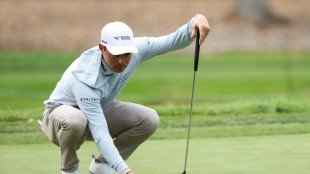 Ben Griffin leads PGA Procore Championship in Ryder Cup tune-up
Ben Griffin leads PGA Procore Championship in Ryder Cup tune-up
-
'We're more than our pain': Miss Palestine to compete on global stage
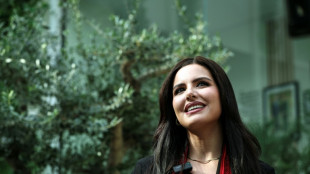
-
 Ingebrigtsen seeks elusive 1500m world gold after injury-plagued season
Ingebrigtsen seeks elusive 1500m world gold after injury-plagued season
-
Thailand's Chanettee leads by two at LPGA Queen City event

-
 Dolphins' Hill says focus is on football amid domestic violence allegations
Dolphins' Hill says focus is on football amid domestic violence allegations
-
Nigerian chef aims for rice hotpot record
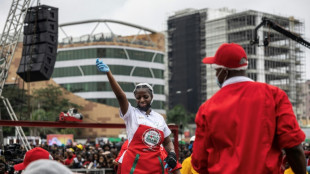
-
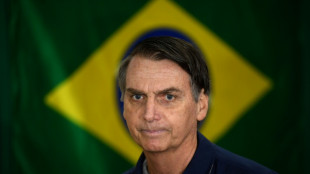 What next for Brazil after Bolsonaro's conviction?
What next for Brazil after Bolsonaro's conviction?
-
Fitch downgrades France's credit rating in new debt battle blow
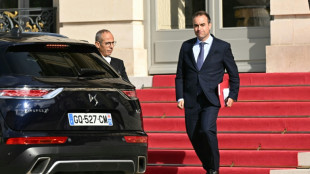
-
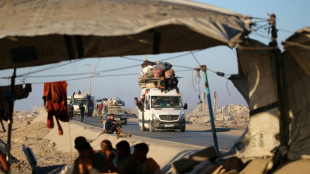 Fifty reported dead in Gaza as Israel steps up attacks on main city
Fifty reported dead in Gaza as Israel steps up attacks on main city
-
Greenwood among scorers as Marseille cruise to four-goal victory

-
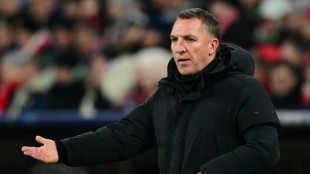 Rodgers calls out 'cowardly' leak amid Celtic civil war
Rodgers calls out 'cowardly' leak amid Celtic civil war
-
Frenchman Fourmaux grabs Chile lead as Tanak breaks down

-
 Germany, France, Argentina and Austria on brink of Davis Cup finals
Germany, France, Argentina and Austria on brink of Davis Cup finals
-
New coach sees nine-man Leverkusen beat Frankfurt

-
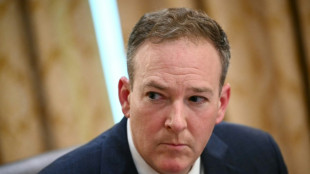 US moves to scrap emissions reporting by polluters
US moves to scrap emissions reporting by polluters
-
Matsuyama leads Ryder Cup trio at PGA Championship
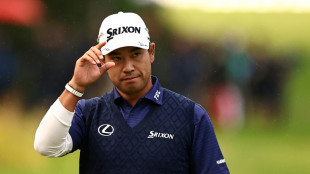
-
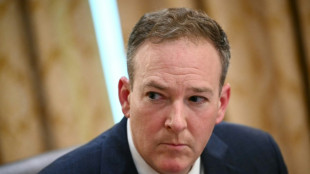 US to stop collecting emissions data from polluters
US to stop collecting emissions data from polluters
-
Pope Leo thanks Lampedusans for welcoming migrants
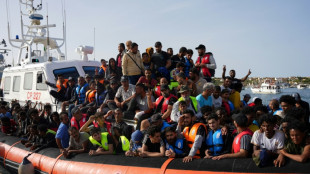
-
 Moscow says Ukraine peace talks frozen as NATO bolsters defences
Moscow says Ukraine peace talks frozen as NATO bolsters defences
-
Salt's rapid ton powers England to record 304-2 against South Africa in 2nd T20

-
 Noah Lyles: from timid school student to track's showman
Noah Lyles: from timid school student to track's showman
-
Boeing defense workers reject deal to end strike
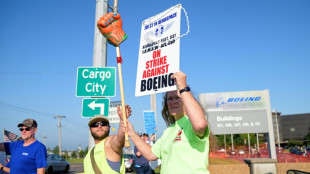
-
 Germany, Argentina close in on Davis Cup finals
Germany, Argentina close in on Davis Cup finals
-
Alvarez, Crawford both tip scales at 167.5 pounds for title bout

-
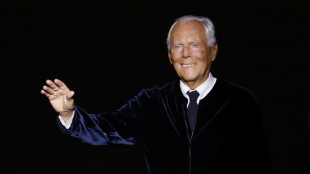 Armani will lays path to potential buyout by rival
Armani will lays path to potential buyout by rival
-
'We don't want to become a memory': minister of endangered Tuvalu
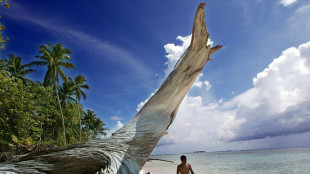
-
 Ireland coach 'fully confident' Wafer fit for Women's Rugby World Cup quarter-final
Ireland coach 'fully confident' Wafer fit for Women's Rugby World Cup quarter-final
-
Philipsen wins sprint for Vuelta treble

-
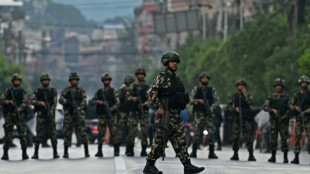 Nepal ex-chief justice Karki becomes next PM after protests
Nepal ex-chief justice Karki becomes next PM after protests
-
Peruvians live in fear as extortion runs rampant
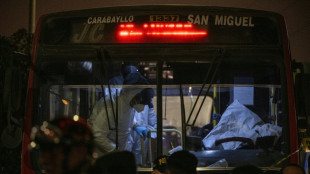
-
 Philipsen wins Vuelta stage 19 for treble
Philipsen wins Vuelta stage 19 for treble
-
UN expert urges protection for indigenous Botswana people


Ireland's 'economic miracle' at risk from tariffs
The deal between the United States and the European Union may have averted a transatlantic trade war, but worries persist in Ireland where crucial sectors are dependent on US multinationals.
Attracted primarily by low corporate taxes, huge pharmaceutical firms like Pfizer, Eli Lilly, and Johnson & Johnson, and tech giants like Apple, Google, and Meta have based their European headquarters there.
The US investor influx has boosted Irish tax coffers and fuelled record budget surpluses in recent years.
But Trump's tariffs -- a baseline rate of 15 percent on EU exports will apply across the board -- present a stress test for the Irish economic model.
Once one of western Europe's economic laggards, Ireland became known as the "Celtic Tiger" thanks to a remarkable turnaround in the 1990s.
A model built on low corporate tax and an English-speaking workforce in an EU country proved seductive to foreign investors, particularly from the US.
Their presence drove rampant economic growth and would later help Ireland rebound from the financial crash of 2008.
The transition was an "Irish economic miracle," said Louis Brennan, professor of business studies at Trinity College Dublin.
"Ireland has advanced in a matter of decades from being one of the poorest countries of northwestern Europe to being one of the most prosperous," he told AFP.
Last year Ireland hiked its corporate tax rate from 12.5 to 15 percent after pressure from the Organisation for Economic Co-operation and Development (OECD), but still anticipates a budget surplus of 9.7 billion euros for 2025.
Ireland's "spectacular" transformation "may have been too successful because we are very dependent in many ways on American companies," says Dan O'Brien, director of the IIEA think tank in Dublin.
- Pharma in frontline -
Spared from the first round of Trump's tariffs, pharmaceutical companies are now being targeted by the American administration, keen to repatriate production to home soil.
Earlier this month the US president threatened a 200 percent levy on the sector.
Irish Prime Minister Micheal Martin expressed mixed feelings at Sunday's 15 percent deal, welcoming that "punitively high tariffs" were avoided.
But "higher tariffs than there have been" will make transatlantic trade "more expensive and more challenging," he added.
The new 15 percent levy sealed will be "particularly unwelcome in Ireland," O'Brien told AFP.
"The pharmaceutical industry is very large relative to the size of the economy, and in recent times around half of its exports have gone to the United States," he said.
Pharma employs about 50,000 people and accounted for nearly half of Irish exports last year, reaching 100 billion euros, up by 30 percent year-on-year.
"Ireland's problem is that it is uniquely integrated into the United States economy," said O'Brien.
"There's no other European country like this. So Ireland is caught in the middle," he said.
Large pharmaceutical companies, particularly American ones, also host certain patents in the country to reduce their tax burden, which then boosts the Irish tax take.
Tariffs "risk strongly discouraging American companies from setting up their future factories in Ireland," said Brennan.
The US could still decide to impose further tariffs on the sector following an ongoing probe into whether pharmaceutical imports pose a national security problem, he said.
Tech firms with EU bases in Dublin who have also transferred part of their intellectual property rights will not be directly impacted by the imposition of tariffs on physical goods.
The sector is also a "significant area of investment and employment for Ireland, but at least from a US perspective, it seems outside the scope of the tariffs," said Seamus Coffey, an economics professor at University College Cork.
Beyond tariffs, tech could be affected if the United States decides to modify its tax regime to make it less attractive to set up in low-tax countries, said Andrew Kenningham, from Capital Economics.
T.Suter--VB

